SNP manifesto 2024: what money policies did John Swinney announce?
The SNP manifesto has been launched in Scotland, and makes several key commitments, including a pledge to end austerity and a commitment to rejoin the EU.

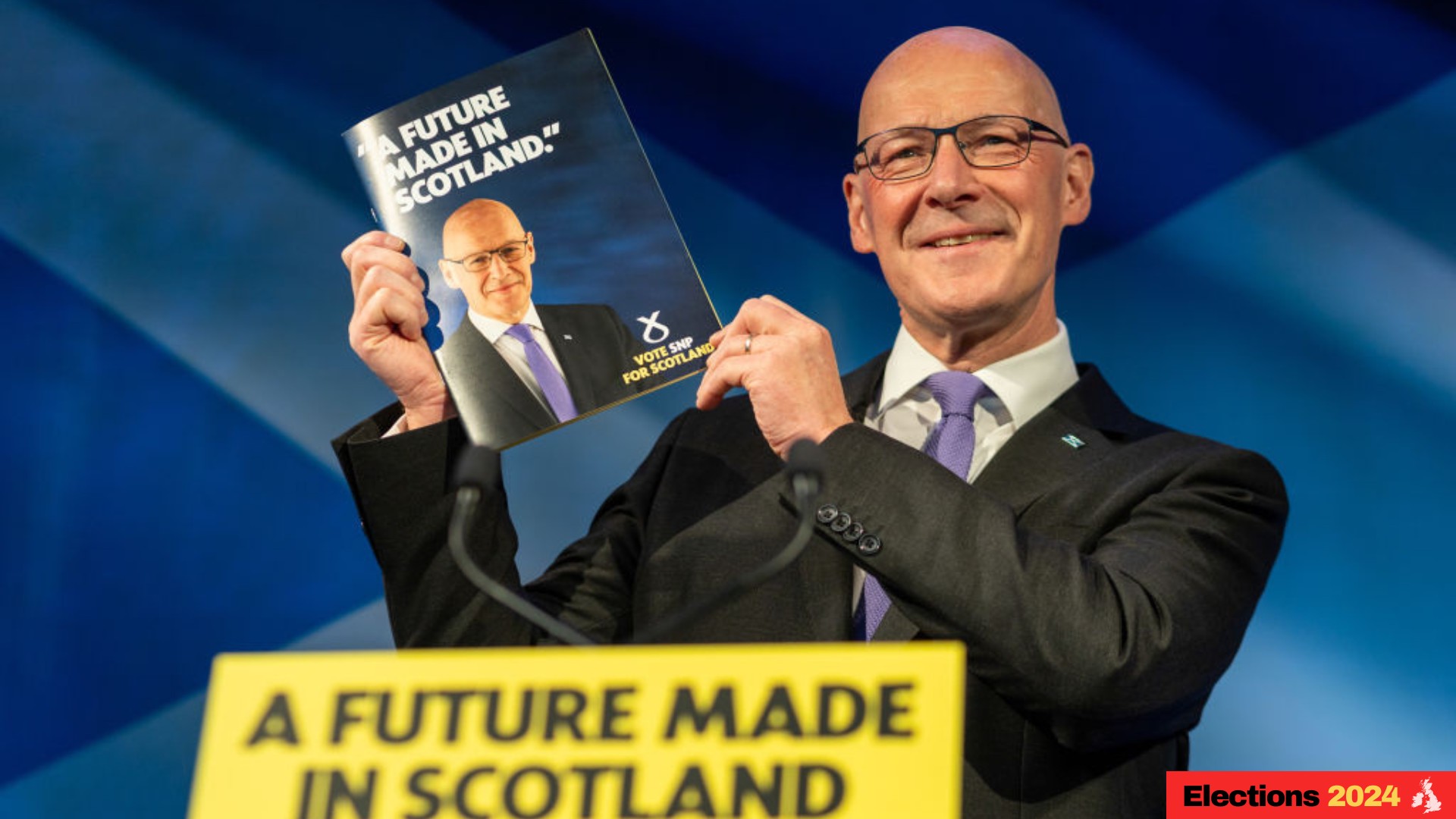
Get the latest financial news, insights and expert analysis from our award-winning MoneyWeek team, to help you understand what really matters when it comes to your finances.
You are now subscribed
Your newsletter sign-up was successful
Want to add more newsletters?

Twice daily
MoneyWeek
Get the latest financial news, insights and expert analysis from our award-winning MoneyWeek team, to help you understand what really matters when it comes to your finances.

Four times a week
Look After My Bills
Sign up to our free money-saving newsletter, filled with the latest news and expert advice to help you find the best tips and deals for managing your bills. Start saving today!
John Swinney has launched the SNP manifesto for the 2024 general election in Edinburgh, with Scottish independence, austerity and Brexit high up on its agenda.
The party, which has been in charge of the Scottish government since 2007, has promised that it would move to open independence negotiations with the UK government should it secure a majority of seats north of the border. It also wants to end the “Westminster consensus” of public service cuts, as well as rejoin the EU.
In terms of personal finance commitments, the party says it wants to push for full devolution of the tax system, maintain the triple lock on the state pension, and get the Westminster government to provide “full, fast, and fair” compensation to Waspi women. It also pledged it would “tackle the cost of living crisis” by, amongst other things, calling for statutory social tariffs for utilities.
MoneyWeek
Subscribe to MoneyWeek today and get your first six magazine issues absolutely FREE

Sign up to Money Morning
Don't miss the latest investment and personal finances news, market analysis, plus money-saving tips with our free twice-daily newsletter
Don't miss the latest investment and personal finances news, market analysis, plus money-saving tips with our free twice-daily newsletter
While you can’t vote for the SNP unless you live in Scotland, the party had the third biggest grouping of MPs in the House of Commons during the last Parliament. But the polls suggest it could lose several seats at the 4 July election.
Its manifesto is the last to be published by the major parties. The Conservative Party’s document contained promises targeted at its core vote, while Labour’s manifesto was centred around proving it could be trusted with the public finances. The Liberal Democrats have pledged to make the economy fairer, the Green Party has pushed to make the UK more environmentally friendly, while Reform UK has laid out a five-year plan to overtake the Tories.
What money pledges has the SNP manifesto made?
The SNP has set out several personal finance pledges covering taxes, pensions and utility bills. Here’s a round up of what the manifesto promises across each of these categories.
Taxes
After independence, the second highest priority in the SNP manifesto is a plan to push the Westminster government to give Holyrood “full devolution” on tax. At present, the Scottish government has control over income tax - but little else besides.
John Swinney’s party says having control over the entire tax system would make it “fairer” and would allow the Scottish government to ensure it “protects public services and invests in our economy”.
A key levy it wants greater power over is National Insurance. It suggests it wants to bring it in line with Scottish income tax, which has different bands to those elsewhere in the UK. The SNP has also targeted bringing windfall taxes under Holyrood’s scope to help it fund its cost of living measures and tackle climate change. The document suggests taxes on excess profits could be extended to other sectors, given the current oil and gas-focused regime is geographically focused on the North East of Scotland.
Other taxes it wants under its scope include road tax and fuel duty, which it says would allow it to “develop a new approach to funding road travel” - the suggestion being that these taxes would be scrapped in favour of something else. VAT reform would also be high up on the party’s agenda, with lower rates applied to hospitality and tourism and reliefs extended to other services, like on-street EV charging. Like Labour, it says it wants to strip private schools of their VAT tax break.
Alongside tax reforms, the SNP says more devolved powers would also allow it to crack down on tax avoidance and evasion. The party added that it wants to force international firms to be more transparent about how much they pay into the public purse.
Public finances
The SNP has come up with its own set of fiscal rules that it says will allow Scotland to pour more investment into its infrastructure and public services. Most of the main parties have signed up to Jeremy Hunt’s strict set of rules, which some economists have described as being arbitrary and too tight.
If Swinney succeeds in convincing the next UK government to implement his fiscal rules in its first budget - an event the party wants to happen immediately - we would get a ‘public sector net worth rule’, which the manifesto says would recognise the value of investing in infrastructure and public sector assets, on top of liabilities. A maximum limit on debt servicing costs would also come in, which would see the sustainability of the national debt reviewed. Finally, it calls for three-year detailed spending plans to support planning and boost clarity for devolved governments.
These rules would support public services and grow the economy, the SNP claims, arguing that the current rules “choke off borrowing for investment” and are not “pragmatic”.
One key infrastructure spending commitment it wants to bring in is a £28bn a year green investment. In a clear dividing line with Labour, which axed its own £28bn environmental target, the party says it could deliver a “step change” in advancing towards net zero.
Cost of living
On the cost of living, the SNP has targeted reforming utilities in a bid to alleviate financial pressures. It wants to push for an “essentials guarantee” that would ensure everyone can afford “basic necessities”, such as food and energy.
Among the party’s ideas to bring energy bills down, it wants to implement a statutory social tariff on energy bills, bring in a “significant cut” to standing charges and increase benefits. It would also reintroduce the Help to Buy ISA to aid first-time buyers.
Pensions
The SNP has joined the other major parties in committing to the triple lock on the state pension. It says it also wants to bring in a ‘wellbeing pension’ and to oppose any speeding up of plans to hike the state pension age.
For Waspi women, there is a pledge in the manifesto to press the next UK government to implement compensation in full. It adds that it wants to reverse pension credit cuts, maximise pension credit uptake, and to force the Westminster government to “compensate in full” those who have been affected by the Equitable Life Scandal.
Get the latest financial news, insights and expert analysis from our award-winning MoneyWeek team, to help you understand what really matters when it comes to your finances.
-
 Can mining stocks deliver golden gains?
Can mining stocks deliver golden gains?With gold and silver prices having outperformed the stock markets last year, mining stocks can be an effective, if volatile, means of gaining exposure
-
 8 ways the ‘sandwich generation’ can protect wealth
8 ways the ‘sandwich generation’ can protect wealthPeople squeezed between caring for ageing parents and adult children or younger grandchildren – known as the ‘sandwich generation’ – are at risk of neglecting their own financial planning. Here’s how to protect yourself and your loved ones’ wealth.
-
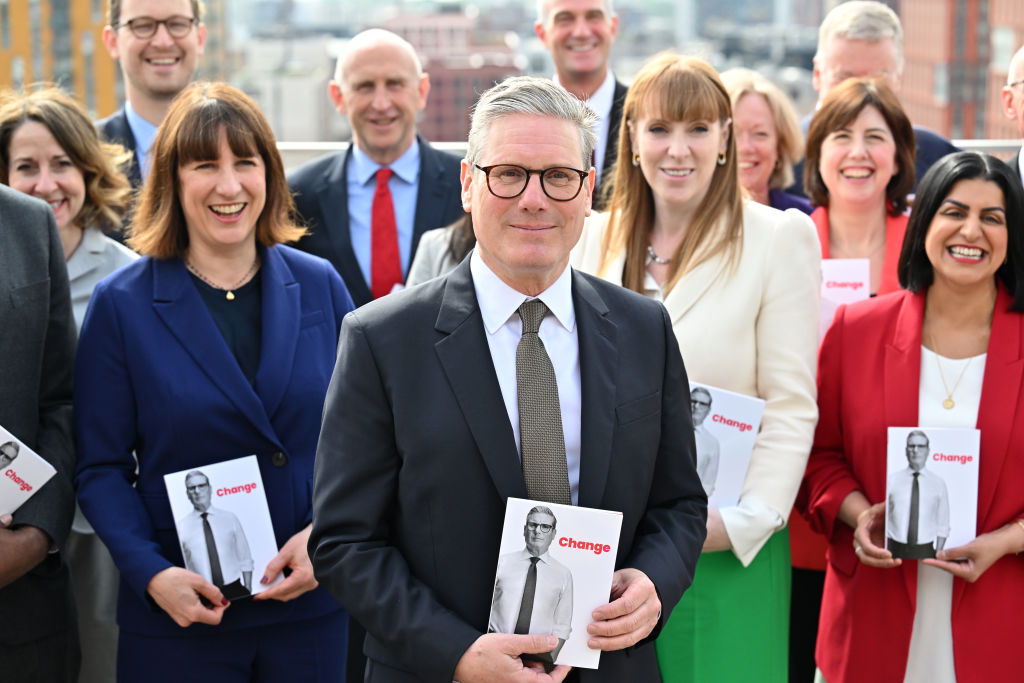 General election 2024: who’s in the Labour cabinet?
General election 2024: who’s in the Labour cabinet?A new Labour cabinet has been appointed by Keir Starmer after his party won the general election. Here’s the latest on who’s in it
-
 What does the Labour election win mean for your money? Key manifesto points after landslide
What does the Labour election win mean for your money? Key manifesto points after landslideNews The Labour election win was not as large as some polls had predicted. But the new government’s majority will mean it can enact significant changes.
-
 What would a Labour supermajority mean for capital markets?
What would a Labour supermajority mean for capital markets?The Conservative Party has warned that a Labour supermajority would be bad for democracy. But what impact could a big win for Keir Starmer have on the markets?
-
 Labour pledges to open 'at least' 350 banking hubs over next Parliament
Labour pledges to open 'at least' 350 banking hubs over next ParliamentNews The Labour Party claims it will ‘bring banking back to the high street’ if it forms the next government after the 2024 general election.
-
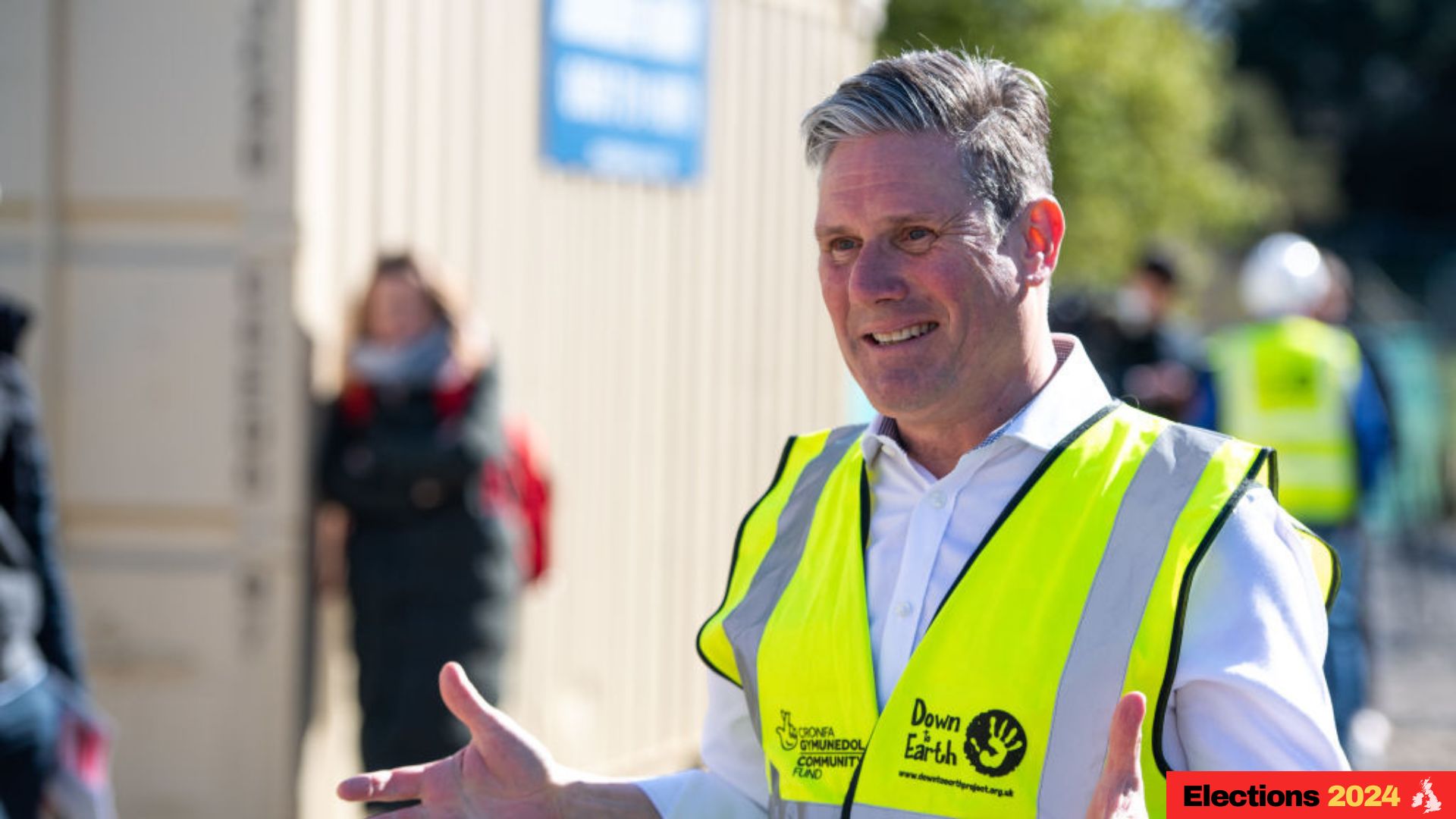 What does the Labour manifesto say about property? Key 2024 general election pledges
What does the Labour manifesto say about property? Key 2024 general election pledgesNews The Labour manifesto has made several promises around rental reforms, the leasehold system and housing market support. Here’s what a Keir Starmer government means for property.
-
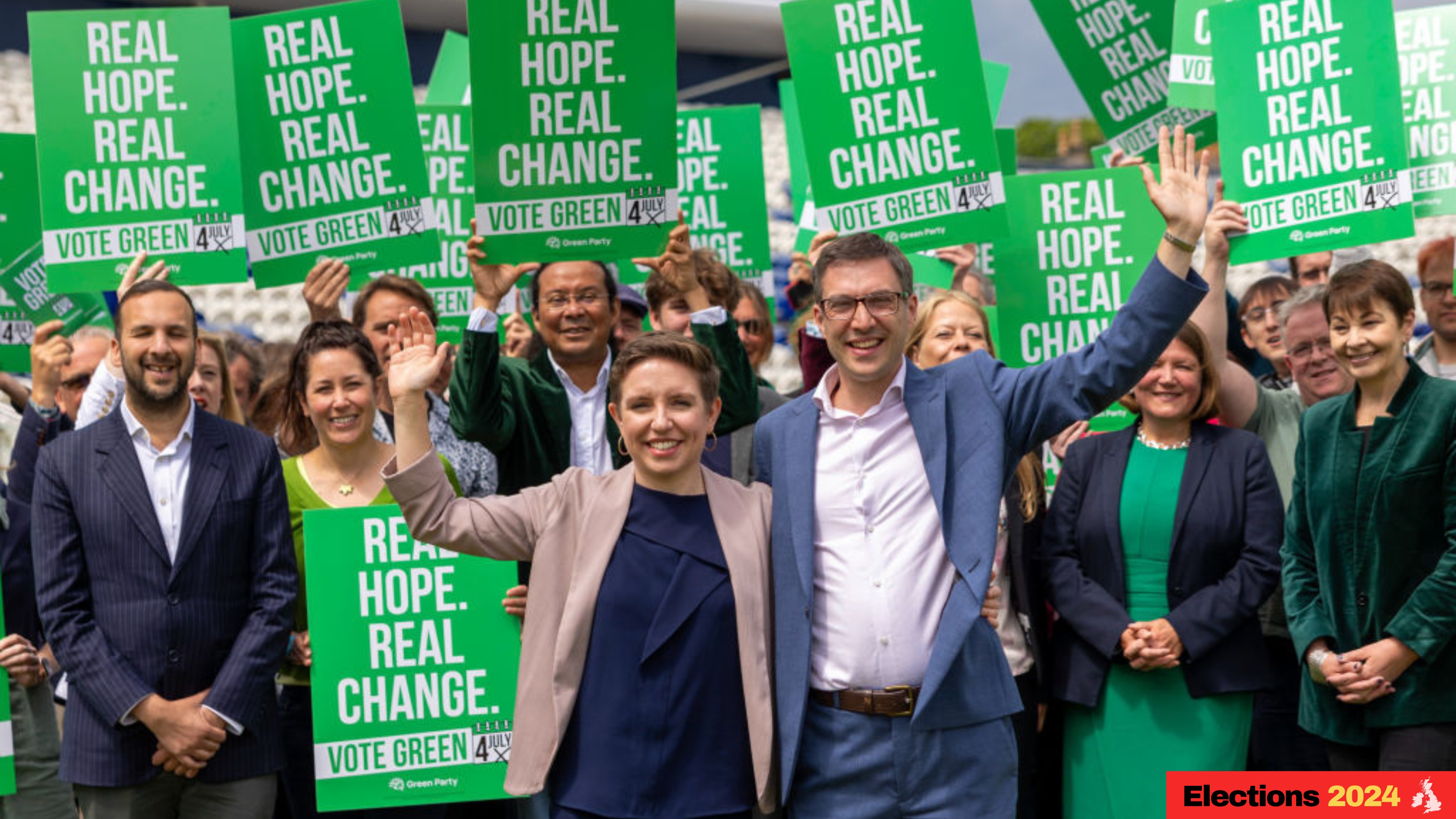 Green Party manifesto 2024: key personal finance general election policies
Green Party manifesto 2024: key personal finance general election policiesA Green Party government would introduce a wealth tax, increase National Insurance Contributions for high earners, and move towards a universal basic income.
-
 Conservatives pledge to raise high income child benefit threshold – how much could you save?
Conservatives pledge to raise high income child benefit threshold – how much could you save?News The high income child benefit charge threshold could be doubled to £120,000 if the Conservative Party wins the general election, Chancellor Jeremy Hunt has pledged.
-
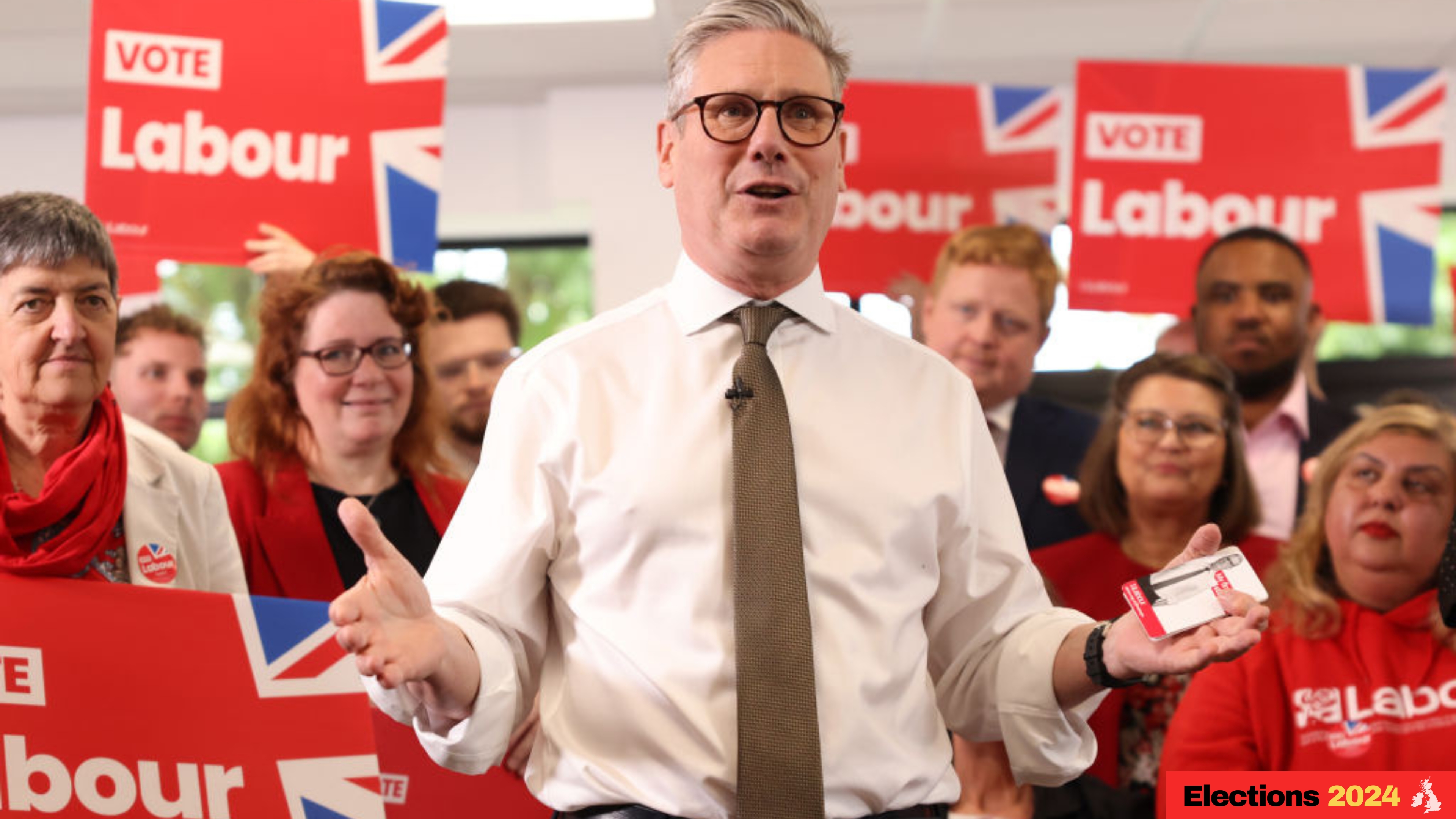 Labour unveils 'Freedom to Buy' pledge to get young people on housing ladder
Labour unveils 'Freedom to Buy' pledge to get young people on housing ladderNews Freedom to Buy will get 80,000 young people onto the housing ladder by the next general election, Keir Starmer's party has claimed
